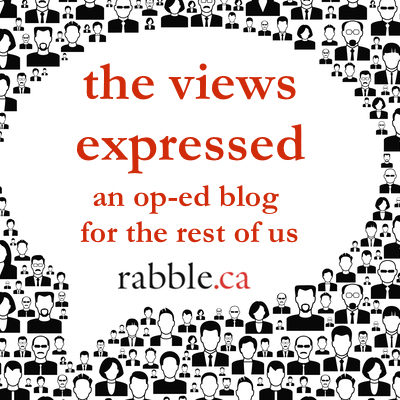Like this article? rabble is reader-supported journalism. Chip in to keep stories like these coming.
Here’s one election story you probably missed.
Over the past few weeks, a number of organizations working in the area of poverty eradication have released reports and updates about the reality of poverty in Canada.
But we haven’t heard much about it on the campaign trail.
Campaign 2000 has mapped poverty rates in ridings across Canada, reporting that 147 ridings have child poverty rates above the national average of 19 per cent. The recent Vital Signs report highlights the growing gap between the rich and poor in Toronto. More recently, the University of Toronto research group, PROOF, in their report show that household food insecurity affects four million Canadians.
Today, Citizens for Public Justice (CPJ) released “On the Margins,” its annual poverty update. This follows the Dignity for All campaign’s annual Chew On This events, where we saw communities across Canada join together on October 6th to call for a national anti-poverty plan. It is encouraging to know that there are so many Canadians mobilizing for an end to poverty in Canada. However, as this and other updates indicate, there has been no real improvement.
In Canada 4.9 million people live in poverty. That is 14.6 per cent of us or 1 in 7 people.
“On the Margins” shows the far-reaching impact of poverty, hitting communities across Canada. It also highlights the fact that some groups are hit harder than others. Poverty rates for Indigenous people are at 25.3 per cent, while the national poverty rate for Indigenous children is a staggering 40 per cent. And some First Nations communities are seeing up to 64 per cent child poverty. Meanwhile, poverty rates for single parent-led families and new immigrants are more than double the national rate at 34.5 per cent and 34.2 per cent respectively.
Most provinces have developed or have committed to developing poverty reduction or poverty elimination strategies. The lone holdout is British Columbia. More and more municipalities are doing the same. Edmonton mayor Don Iveson has set the goal of ending poverty in his city in a generation and has put together a task force to work toward this goal. Toronto has released its 20 year “poverty busting” plan.
With the provinces, territories, and municipalities increasingly on board, anti-poverty groups continue to ask themselves one question:
Where is the federal government is on this issue?
The federal election campaign has made it clear that the focus is on the middle class, that amorphous group that most of us tend to think we belong to but can’t really define. This does a disservice to those who struggle every day to pay their bills, to feed their children, and to participate fully in their communities.
We need a national anti-poverty plan. In February, the Dignity for All campaign presented a model plan that provides a strong starting point for federal policy action.
In the four main federal party platforms, there are some steps forward. The Conservatives are maintaining support for the Aboriginal Skills and Employment Training Strategy. While we don’t yet know the details, the New Democrats have committed to a Poverty Elimination Act, which involves a national anti-poverty strategy developed in consultation with provincial/territorial, municipal, and Indigenous governments. The Liberals are proposing to increase investments in a new Canada Child Benefit, which is a combination of the Canada Child Tax Benefit and the National Child Benefit Supplement. In a different approach to addressing poverty, the Green Party has committed to developing and implementing a Guaranteed Livable Income.
So while the party leaders are not talking about poverty very much, they have made commitments we can hold them to.
And for Canadians who want to see federal leadership to end poverty in Canada, we have an important choice to make on Monday.
Darlene O’Leary is a Policy Analyst with Citizens for Public Justice, a member-driven, faith-based public policy organization in Ottawa.




